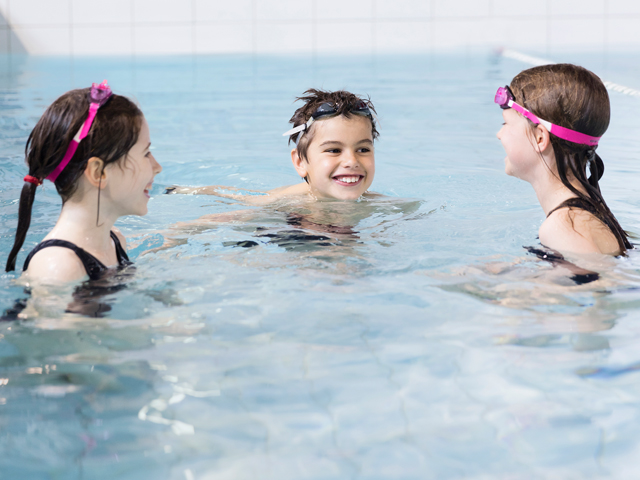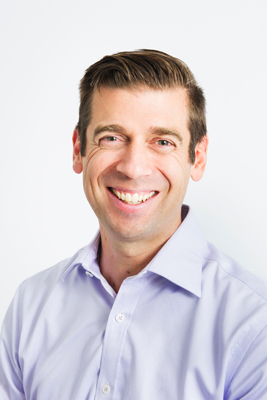Dr Justin Coulson Swim Break Interview

Dr Justin Coulson Warns Parents on the Dangers of A 'Swim Break'
As spring and summer approach, Kingswim is reminding parents on the dangers of taking a swim break and that a few lessons here and there do not guarantee your child's ability and safety around water.
Australia's leading parenting expert Dr Justin Coulson says parents should never underestimate the importance of starting swimming lessons early and learning how to swim properly.
"As parents we hold our children's safety above all things. With warmer weather fast approaching it's important that our children are equipped with the necessary tools to be confident in the water. Having a child who knows how to swim means more than knowing the basics," he says.
"Children should be able to stay afloat and swim unaided for a significant distance just in case they get into strife.
"It's this level of 'knowing how to swim' that gives your child the best chance at getting themselves out of trouble in the water. Like anything, learning this skill requires consistency to build both confidence and muscle memory.
"I urge parents not to become complacent once children learn the basics of floating or treading water, it's simply not enough."
Kingswim has noticed a particular tendency for parents to begin Baby Play, a less structured introduction to water for infants, yet not continue with the transition into structured and independent classes – where children learn strokes and survival skills.
Kingswim Area Manager Anne Brown says while starting early is key, so too is consistency and many families are taking a long break between this early introduction and returning to lessons.
"While the transition from the relaxed atmosphere of Baby Play into independent lessons can seem daunting for parents and children alike, sticking with lessons and continuing the swim journey is the best and fastest way to learn to swim," she says.
"Last summer proved how important knowing how to swim and water safety is. In addition to far too many fatal drownings, statistics show for every toddler who drowns another 10 are hospitalised, some left with permanent disabilities.
"Learning to swim is a long-time commitment and it's our goal for all our swimmers to reach graduate level, meaning they can freestyle one kilometre nonstop, are skilled for life, don't need any further lessons, and can now enjoy all that life in and around the water has to offer."
Despite the incredible benefits of children starting early and graduating from swim lessons, Kingswim has found many children are not reaching this milestone.
Anne says: "Taking a break from swimming lessons before children have graduated can lead to children returning to square one; losing skills previously mastered, losing confidence and their feel for the water. To develop their ability, children need constant exposure to the water, which is why it's so important to start early and stick with it.
"The ultimate goal is to ensure children, from infants to teenagers, have a healthy respect in and around water environments, and are confident and skilled enough to have the best chance at getting themselves out of trouble. It's important children learn the relevant, lifesaving skills at every age, from an infant learning to do a turnaround swim after an accidental fall into the water, to a fully graduated swimmer able to freestyle one kilometre.
"Learning to swim is a big achievement, and one that doesn't happen overnight or with one term of lessons here and there. Every child is different but the key to learning is practice and consistency." Reports by Royal Lifesaving found that only 50% of 11 and 12-year-old children could achieve the 'Benchmark' in freestyle, backstroke, survival backstroke and breaststroke.
To ensure competency and safety around water Kingswim's program includes 12 levels, by the end of which swimmers graduate being able to freestyle 1,000 metres nonstop – 20 times the national benchmark of 50 metres.
While bub may have enjoyed their initial introduction to the water, the 3-4 age bracket can be a sensitive and difficult one. Without consistent exposure to the water children can develop a fear, so it's important not to lose momentum and build up their confidence with continual lessons.
If your child is just starting out (or starting over), go slow. Focus on enjoyment, comfort, and developing a routine that feels safe and predicatable to them. Kingswim's Baby Play classes is a great start. It focuses on water familiarisation and helps babies feel comfortable in the water before starting lessons. Classes run for 45 minutes, however parents can come and go as they please, so you can start with a short introduction. The class is the only one on at that time to ensure minimal noise for baby's peaceful water play.
Make it fun. One way to get children comfortable in the water and excited about their lessons is seeing their parent's positive attitude and enthusiasm for swimming. Be encouraging about progress, no matter how small.
Acknowledge your child for being brave. If they're 'not' being brave, talk to them each night about what brave things they've done that day. Ask them to talk about how it felt to be brave. Eventually they'll feel brave enough to get back into the pool.

Interview with Dr Justin Coulson, Australia's Leading Parenting Expert
Question: Why should parents avoid allowing their kids to take time off swimming lessons? How does this impact overall ability and safety in the water?
Dr Justin Coulson: Taking a swim break can result in children returning to square one; losing skills previously mastered, losing confidence and their 'feel' for the water or even developing a fear of the water. This means that while children may have had a great initial experience with swimming, returning after a break means they need to build up their confidence in the water again and therefore may take longer to learn than those who remained in lessons.
To develop their ability, children need constant exposure to the water and repetition of skill, which is why it's so important to start early and stick with it.
Question: At what age should a child begin swimming lessons?
Dr Justin Coulson: The earlier the better! Children can begin water familiarisation programs from 12 weeks old. The best and fastest way to learn how to swim is starting young and sticking with it. Allowing children to get their feel for and confidence around water early means they will learn faster and progress through swimming milestones.
Kingswim's Baby Play classes are the perfect way to start, getting bubs 12 weeks to three months familiar with the water during a quiet, relaxed and playful session.
Question: How do lessons encourage water confidence in children?
Dr Justin Coulson: Children who attend ongoing swimming lessons have stronger resilience in the water as they are already exposed and comfortable in the pool. Parents can also play a part in building their confidence and should continually encourage children and celebrate milestones big and small. This is particularly important for children who may be a little nervous, are coming back from a break or transitioning from parent-child to independent lessons.
Question: What typically happens during beginner's swimming lessons?
Dr Justin Coulson: Beginner's classes usually involve introducing bubs and kids to the water in a relaxed atmosphere. Kingswim's Baby Play classes focus on water familiarisation and helps babies feel comfortable in the water before starting lessons. Baby Play classes have been carefully programmed to minimise loudness at Kingswim Centres.
Question: What determines real water safety?
Dr Justin Coulson: Real water safety is determined by a child's ability to swim and get themselves out of trouble in the water. Knowing the basics simply isn't enough, we have to strive for children to become independent swimmers by encouraging learning milestones and build up their confidence in the water. From six months to three years, children move into parent-child lessons where they learn to float, kick and paddle with mum or dad still by their side. From here children transition into independent lessons where they learn strokes and water safety.
Question: What precautions do parents need to implement ahead of summer?
Dr Justin Coulson: No matter how prepared you are with your child's safety, water will always be an unpredictable danger. Knowing your children can swim and are knowledgeable on water safety and risks can provide a great deal of peace of mind.
Parents should consider what level their child's swimming ability is at and whether they could get themselves out of strife in the water. If you have been on a break from lessons, the lead up to summer is a great time to enrol your child to either learn or refresh their skills before summer hits. This will not only provide parents peace of mind, but also makes for more relaxed and enjoyable family holidays. However, no matter your child's ability, kids should always be supervised around water.
Question: How can parents keep kids excited about on-going swimming lessons?
Dr Justin Coulson: Focus on enjoyment, comfort and developing a routine that feels safe and predictable for children. One way to get kids comfortable in the water and excited about their lessons is seeing their parent's positive attitude and enthusiasm for swimming. Be encouraging about progress, no matter how small.
Interview by Brooke Hunter
MORE



